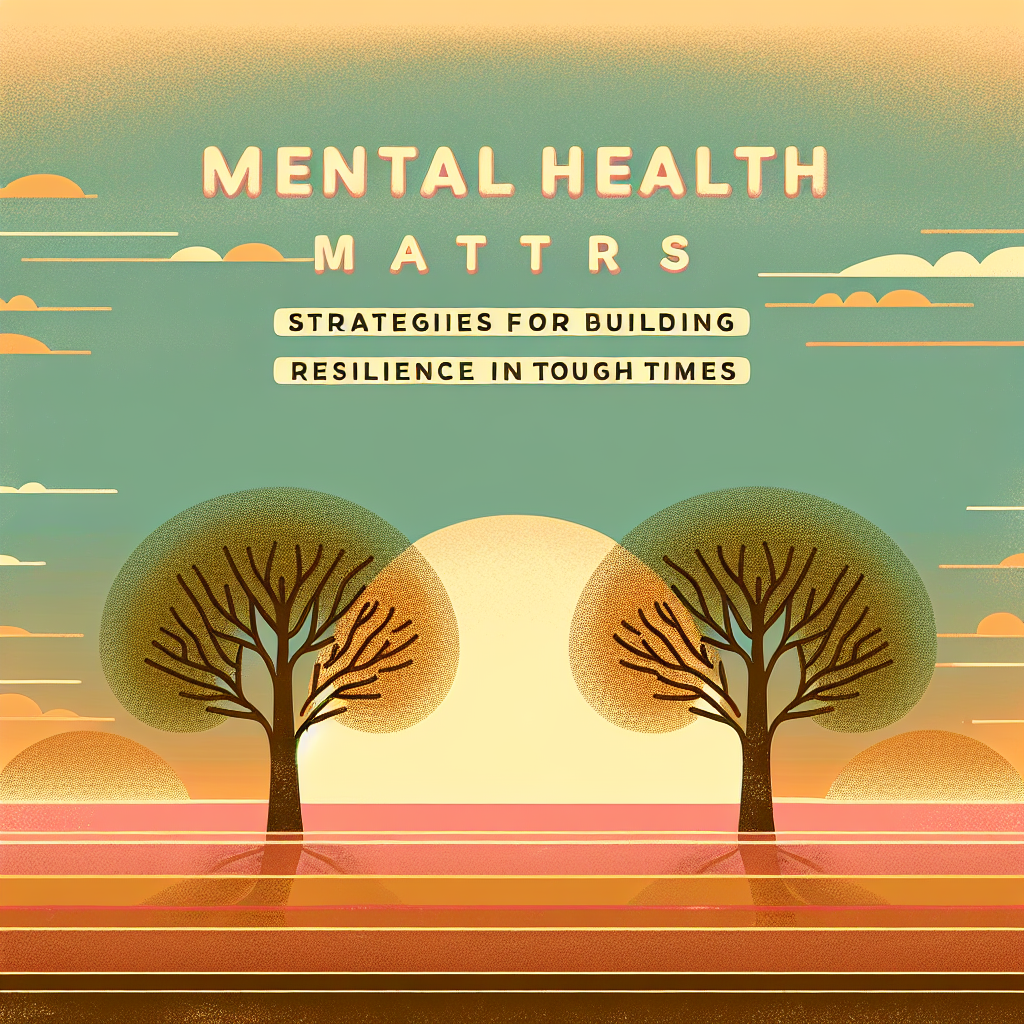In today’s fast-paced world, mental health is more important than ever. As individuals navigate the complexities of life—from personal challenges to global issues—building resilience is crucial for maintaining mental well-being. Resilience is the ability to bounce back from adversity, adapt to change, and keep going in the face of difficulties. Here, we explore the significance of mental health and practical strategies to enhance resilience during tough times.
Understanding Resilience
Resilience is not an inherent trait; it is a skill that can be cultivated. Research has shown that resilience can limit the impact of stress on our lives, help us recover from setbacks, and enable us to achieve our goals despite adversity. Building resilience can transform how we respond to challenges, leading to improved mental health and overall life satisfaction.
The Importance of Mental Health
Mental health encompasses our emotional, psychological, and social well-being. It affects how we think, feel, and act. When our mental health is robust, we can cope with stress, work productively, and contribute to our communities. Conversely, poor mental health can lead to anxiety, depression, and other issues that hinder our quality of life. Prioritizing mental health is essential, especially during challenging times.
Strategies for Building Resilience
-
Cultivate a Support Network
- Surround yourself with supportive family and friends who can provide understanding and encouragement. Engaging in social activities fosters connections and reduces feelings of isolation.
-
Practice Mindfulness and Meditation
- Techniques such as mindfulness meditation are effective in reducing stress and anxiety. Regular practice helps center your thoughts, improves emotional regulation, and promotes a balanced perspective.
-
Set Realistic Goals
- Break down larger goals into smaller, achievable steps. Celebrate each accomplishment, no matter how small, to boost your sense of achievement and motivation.
-
Embrace Change
- Accept that change is a part of life. Cultivating flexibility allows you to adapt your expectations and approach, making it easier to cope with unforeseen challenges.
-
Develop Problem-Solving Skills
- Focus on identifying solutions rather than dwelling on problems. Approach challenges with a proactive mindset, fostering a sense of control and empowerment.
-
Prioritize Self-Care
- Engage in activities that nourish your body and mind. Regular exercise, a balanced diet, adequate sleep, and leisure activities all play a vital role in maintaining mental well-being.
-
Seek Professional Help
- If feelings of stress or anxiety become overwhelming, seeking the guidance of a mental health professional can provide coping strategies tailored to your needs.
-
Stay Informed but Limit Exposure
- While staying updated on current events is important, constant exposure to negative news can increase anxiety. Set boundaries on news consumption to protect your mental space.
-
Practice Gratitude
- Reflecting on what you are grateful for can shift your focus from negativity to positivity. Maintaining a gratitude journal is a practical way to remind yourself of the good in your life.
- Engage in Meaningful Activities
- Involve yourself in hobbies or volunteer work that resonates with your values. Engaging in activities that give you a sense of purpose can foster resilience and improve overall mental health.
Conclusion
Building resilience is a vital process that enhances our ability to navigate life’s challenges. By employing strategies that prioritize mental health—such as cultivating supportive relationships, practicing mindfulness, and embracing change—we can foster a more resilient mindset. Remember, it’s okay to seek help when needed, and prioritizing your mental health is a testament to your strength. As we face tough times together, let’s commit to supporting one another and building a more resilient future.
